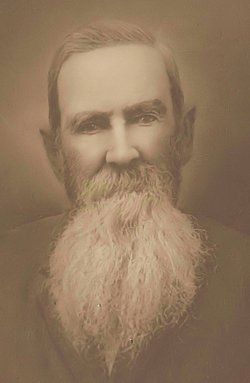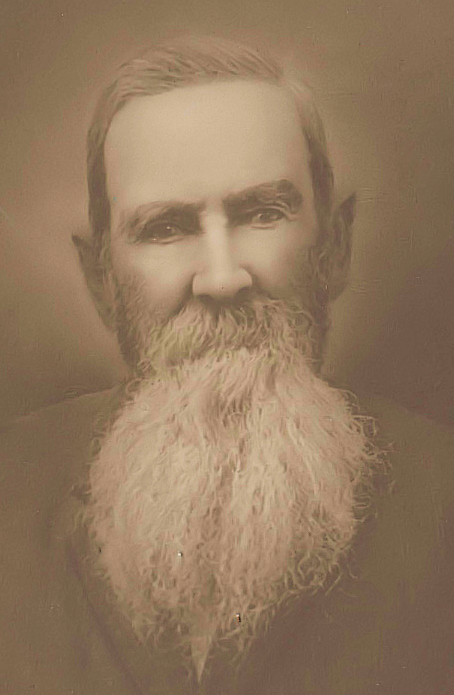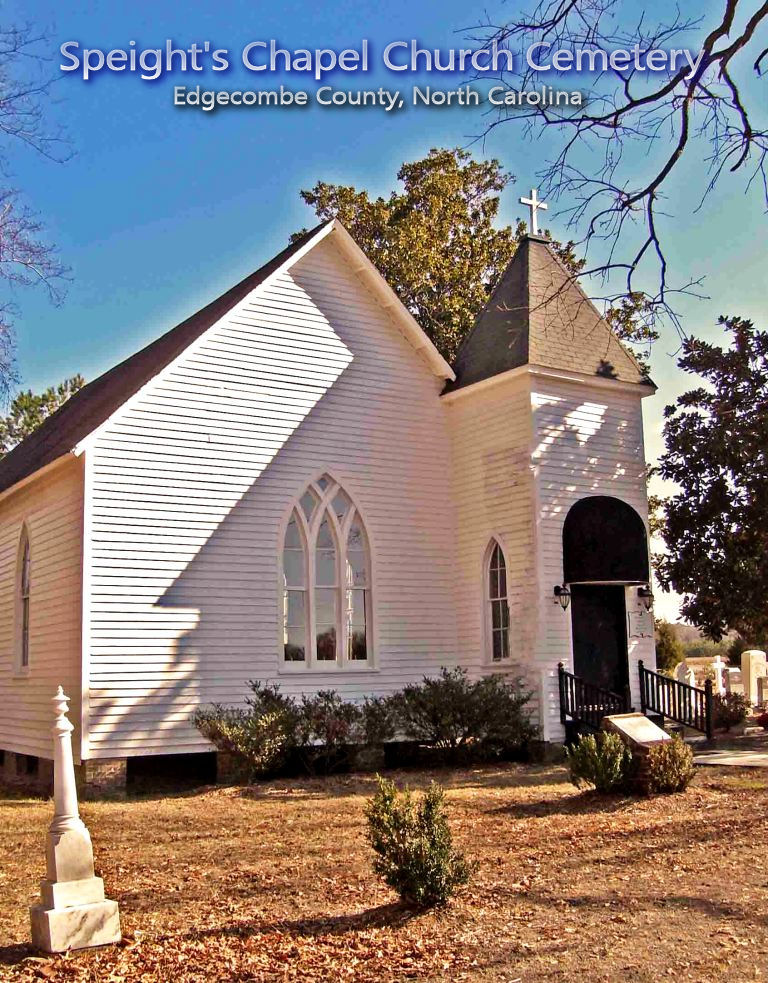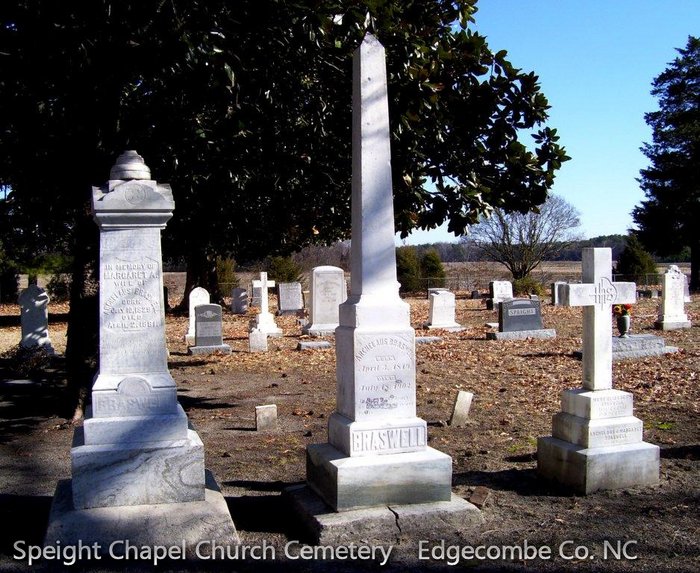George Louis Wimberley, born at "Melon Hill," the home of his father, Robert Diggs Wimberley, Edgecombe County, North Carolina, received his preparatory education at the schools in Tarboro, N.C., entered the State University in 1853, and graduated at the Commencement of 1857.
Among the members of his graduating class were Judge A. C. Avery, Judge Henry R. Bryan, Col. Thos. S. Kenan, Mr. Frank S. Wilkinson, who devoted a long and useful life to teaching, Major John W. Graham, and Col. Robert Bingham, the two last named being the surviving members of the class.
Following graduation, Mr. Wimberley married Miss Frances J. Whitfield of Demopolis, Ala., October 8, 1857, purchased and entered upon his life work on his farm "Marl Bluff," in Edgecombe County, upon which he resided, until his death, January 10th, 1924, in the eighty-eighth year of his age. After a union of singular happiness, covering sixty-one years, Mrs. Wimberley passed away , October 19, 1919.
While always maintaining an interest in all which pertained and contributed to the welfare of his native county, he refrained from any participation in political life, other than the discharge of the duties of citizenship, except a service, for eighteen years, as a member of the Board of County Commissioners.
Among his neighbors were the Phillips, Powells, Speights, Lewises and others, with whom he was related by ties of blood and marriage. He led for more than four score years a useful and happy life. With his children, and in later years, their children, his home was the seat of a generous, refined and always open hospitality.
Mr. Wimberley, in his character, his life and influence, illustrated the highest type of a social , domestic and industrial citizenship, peculiar to North Carolina, of which but few remain. With a fine contentment in the pursuit of his chosen profession, following the example of his ancestors, cultivating and improving the soil, gathering and marketing the fruits of his efforts, applying the proceeds to the rearing and education of his children, the comfort and attraction of his home, he was singularly free from those disturbing influences which have marred the happiness of so many.
His manners were easy, natural, blending a quiet dignity with a genial humor, which invited friendship and secured respect and confidence. In his relations to his neighbors he was kind and gentle, and with every one just and generous. Himself, free from guile or suspicion of the motives of others in whom he confided, he enjoyed, in the same measure, their confidence and esteem. An acquaintance of fifty years does not recall a single unkind or ungenerous expression coming from him. He gave to the cultivation of his hands and the treatment of those who were related to him by service, intelligent attention, exercised fine judgment and was content with the yield of his harvests – uncomplaining of those incidents which, in different measure, come to all men. He neither desired large wealth for himself, nor envied its possession by others. Conservative by heredity and temperament, he was ever ready with a fine discrimination to adopt suggestions of others which commended themselves to his judgment. He marketed his crops intelligently exercising his own judgment, content with fair prices, avoiding counsel, based upon the assumption that others were willing to give, as he to accept, a fair price for what they wished to buy, and he to sell.
He was careful and wise in the administration of his resources, avoiding extravagance and useless display. His home life was, in every respect, ideal. While his wife and himself inherited a sufficient number of slaves – more appropriately described as those related to him by service – for their domestic and agricultural pursuits, they neither bought nor sold slaves. When those coming to them from their ancestors were emancipated, they continued in their new relationship, in his employment. Bound to him and his wife by the ties of mutual help, they recognized, in both, their trusted friends, in whose services many of them and their children remained, until his death. In his relations to all who were in his employment, his life was an illustration of the finest qualities of mind and heart.
Descended from ancestors who, of both branches, had been for several generations among the most useful and honored citizens of Edgecombe County, Mr. Wimberley inherited and illustrated their characteristics. An intelligent observer says:
"In its citizenship was found the expression of a very high order of intelligence and sound judgment. The reward of intelligent industry was so equitably distributed that there were but few very wealthy men in the County. The people lived in comfort, but without extravagance or useless display. They educated their children at home and at the academy in the County town, until their sons were prepared for the University and their daughters for the schools at Salem and Raleigh. They valued and promoted education by individual and community effort rather than through the agency of the State. They were a people whose word was their bond, and whose democracy was the expression of their freedom and independence, living and working along the lines of the principle that required the citizen, when demanding the protection and enforcement of his rights, to recognize and regard the rights of others; they resisted monopoly and decried preferment by special privilege; they wanted every man to have a fair play and an equal show."
In his long, honorable and useful life, Mr. Wimberley, by precept and example, practiced and taught those cardinal virtues of American individualism, cooperating sympathetically and wisely with the best social, industrial and political forces in the environment in which he lived.
Thus living, he fell upon sleep and rested from his labors, at peace with God and man, with a conscience void of offense and in perfect charity with all men.
He left surviving two sons and four daughters, Dr. George L. Wimberley, Dr. Joseph P. Wimberley, Mrs. Kate W. Phillips, Mrs. Edwin Gorham, Mrs. W.S. Wilkinson, and Miss Charlotte Wimberley, twenty-six grandchildren and thirteen great-grandchildren, extending to the third and fourth generations.
He was borne to his final resting place at "Speight's Chapel" by his grandsons with a large number of relatives, neighbors, and friends. He rests by the side of his wife and children, who preceded him, and his kinsmen and neighbors, with whom he lived and whom he loved and served.
H.G. CONNOR
George Louis Wimberley, born at "Melon Hill," the home of his father, Robert Diggs Wimberley, Edgecombe County, North Carolina, received his preparatory education at the schools in Tarboro, N.C., entered the State University in 1853, and graduated at the Commencement of 1857.
Among the members of his graduating class were Judge A. C. Avery, Judge Henry R. Bryan, Col. Thos. S. Kenan, Mr. Frank S. Wilkinson, who devoted a long and useful life to teaching, Major John W. Graham, and Col. Robert Bingham, the two last named being the surviving members of the class.
Following graduation, Mr. Wimberley married Miss Frances J. Whitfield of Demopolis, Ala., October 8, 1857, purchased and entered upon his life work on his farm "Marl Bluff," in Edgecombe County, upon which he resided, until his death, January 10th, 1924, in the eighty-eighth year of his age. After a union of singular happiness, covering sixty-one years, Mrs. Wimberley passed away , October 19, 1919.
While always maintaining an interest in all which pertained and contributed to the welfare of his native county, he refrained from any participation in political life, other than the discharge of the duties of citizenship, except a service, for eighteen years, as a member of the Board of County Commissioners.
Among his neighbors were the Phillips, Powells, Speights, Lewises and others, with whom he was related by ties of blood and marriage. He led for more than four score years a useful and happy life. With his children, and in later years, their children, his home was the seat of a generous, refined and always open hospitality.
Mr. Wimberley, in his character, his life and influence, illustrated the highest type of a social , domestic and industrial citizenship, peculiar to North Carolina, of which but few remain. With a fine contentment in the pursuit of his chosen profession, following the example of his ancestors, cultivating and improving the soil, gathering and marketing the fruits of his efforts, applying the proceeds to the rearing and education of his children, the comfort and attraction of his home, he was singularly free from those disturbing influences which have marred the happiness of so many.
His manners were easy, natural, blending a quiet dignity with a genial humor, which invited friendship and secured respect and confidence. In his relations to his neighbors he was kind and gentle, and with every one just and generous. Himself, free from guile or suspicion of the motives of others in whom he confided, he enjoyed, in the same measure, their confidence and esteem. An acquaintance of fifty years does not recall a single unkind or ungenerous expression coming from him. He gave to the cultivation of his hands and the treatment of those who were related to him by service, intelligent attention, exercised fine judgment and was content with the yield of his harvests – uncomplaining of those incidents which, in different measure, come to all men. He neither desired large wealth for himself, nor envied its possession by others. Conservative by heredity and temperament, he was ever ready with a fine discrimination to adopt suggestions of others which commended themselves to his judgment. He marketed his crops intelligently exercising his own judgment, content with fair prices, avoiding counsel, based upon the assumption that others were willing to give, as he to accept, a fair price for what they wished to buy, and he to sell.
He was careful and wise in the administration of his resources, avoiding extravagance and useless display. His home life was, in every respect, ideal. While his wife and himself inherited a sufficient number of slaves – more appropriately described as those related to him by service – for their domestic and agricultural pursuits, they neither bought nor sold slaves. When those coming to them from their ancestors were emancipated, they continued in their new relationship, in his employment. Bound to him and his wife by the ties of mutual help, they recognized, in both, their trusted friends, in whose services many of them and their children remained, until his death. In his relations to all who were in his employment, his life was an illustration of the finest qualities of mind and heart.
Descended from ancestors who, of both branches, had been for several generations among the most useful and honored citizens of Edgecombe County, Mr. Wimberley inherited and illustrated their characteristics. An intelligent observer says:
"In its citizenship was found the expression of a very high order of intelligence and sound judgment. The reward of intelligent industry was so equitably distributed that there were but few very wealthy men in the County. The people lived in comfort, but without extravagance or useless display. They educated their children at home and at the academy in the County town, until their sons were prepared for the University and their daughters for the schools at Salem and Raleigh. They valued and promoted education by individual and community effort rather than through the agency of the State. They were a people whose word was their bond, and whose democracy was the expression of their freedom and independence, living and working along the lines of the principle that required the citizen, when demanding the protection and enforcement of his rights, to recognize and regard the rights of others; they resisted monopoly and decried preferment by special privilege; they wanted every man to have a fair play and an equal show."
In his long, honorable and useful life, Mr. Wimberley, by precept and example, practiced and taught those cardinal virtues of American individualism, cooperating sympathetically and wisely with the best social, industrial and political forces in the environment in which he lived.
Thus living, he fell upon sleep and rested from his labors, at peace with God and man, with a conscience void of offense and in perfect charity with all men.
He left surviving two sons and four daughters, Dr. George L. Wimberley, Dr. Joseph P. Wimberley, Mrs. Kate W. Phillips, Mrs. Edwin Gorham, Mrs. W.S. Wilkinson, and Miss Charlotte Wimberley, twenty-six grandchildren and thirteen great-grandchildren, extending to the third and fourth generations.
He was borne to his final resting place at "Speight's Chapel" by his grandsons with a large number of relatives, neighbors, and friends. He rests by the side of his wife and children, who preceded him, and his kinsmen and neighbors, with whom he lived and whom he loved and served.
H.G. CONNOR
Family Members
Sponsored by Ancestry
Advertisement
Advertisement
















